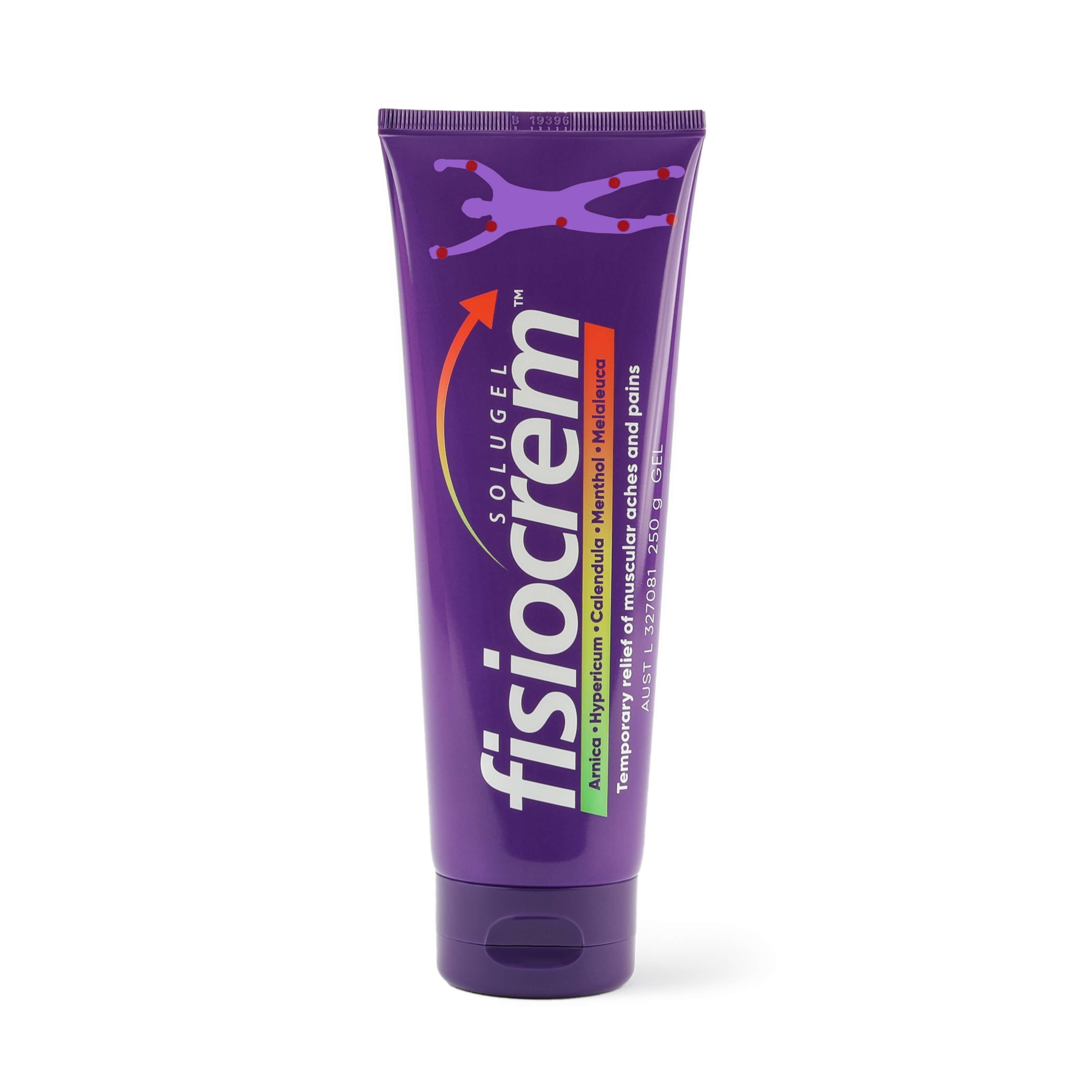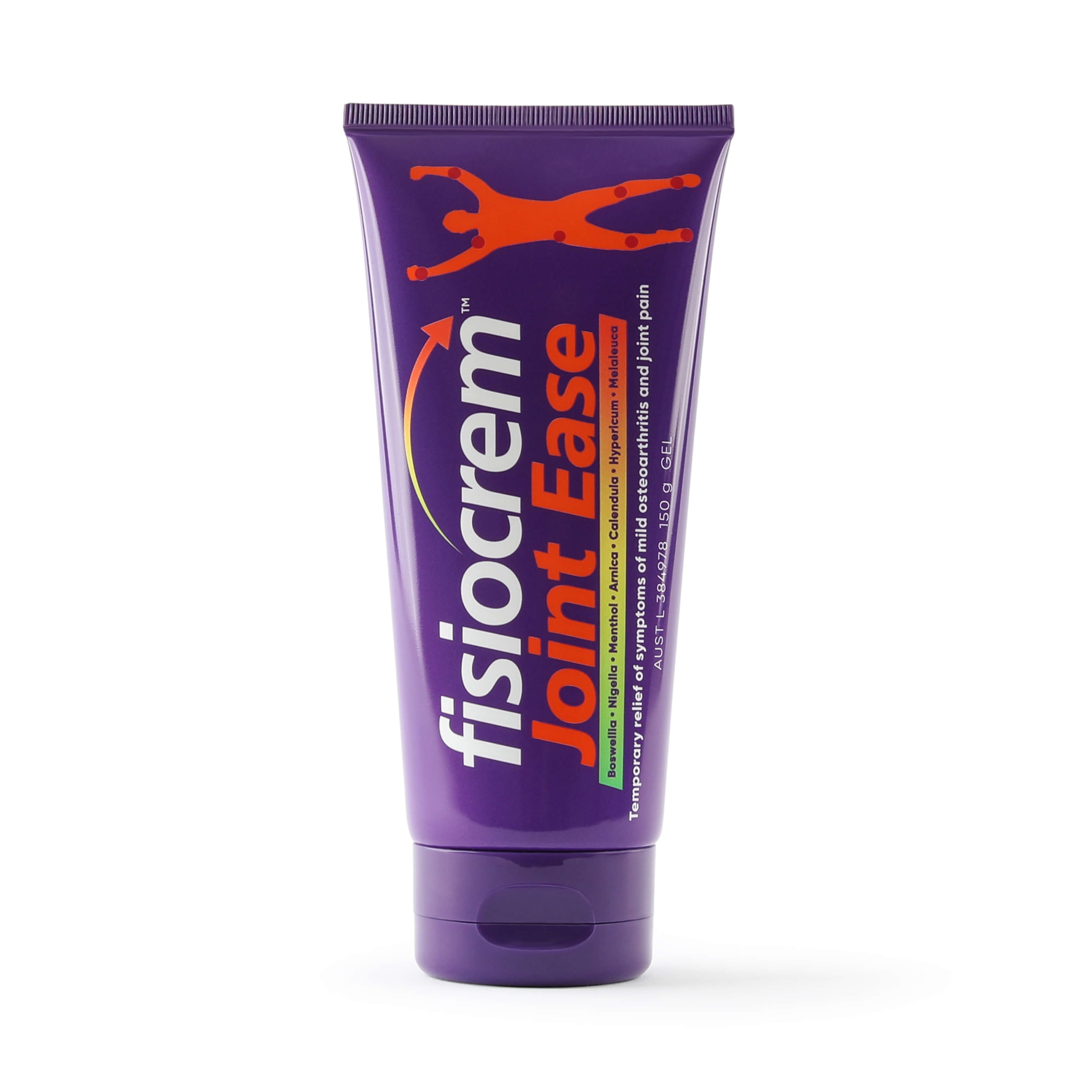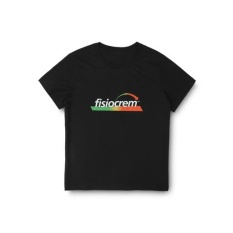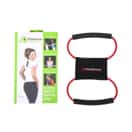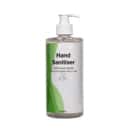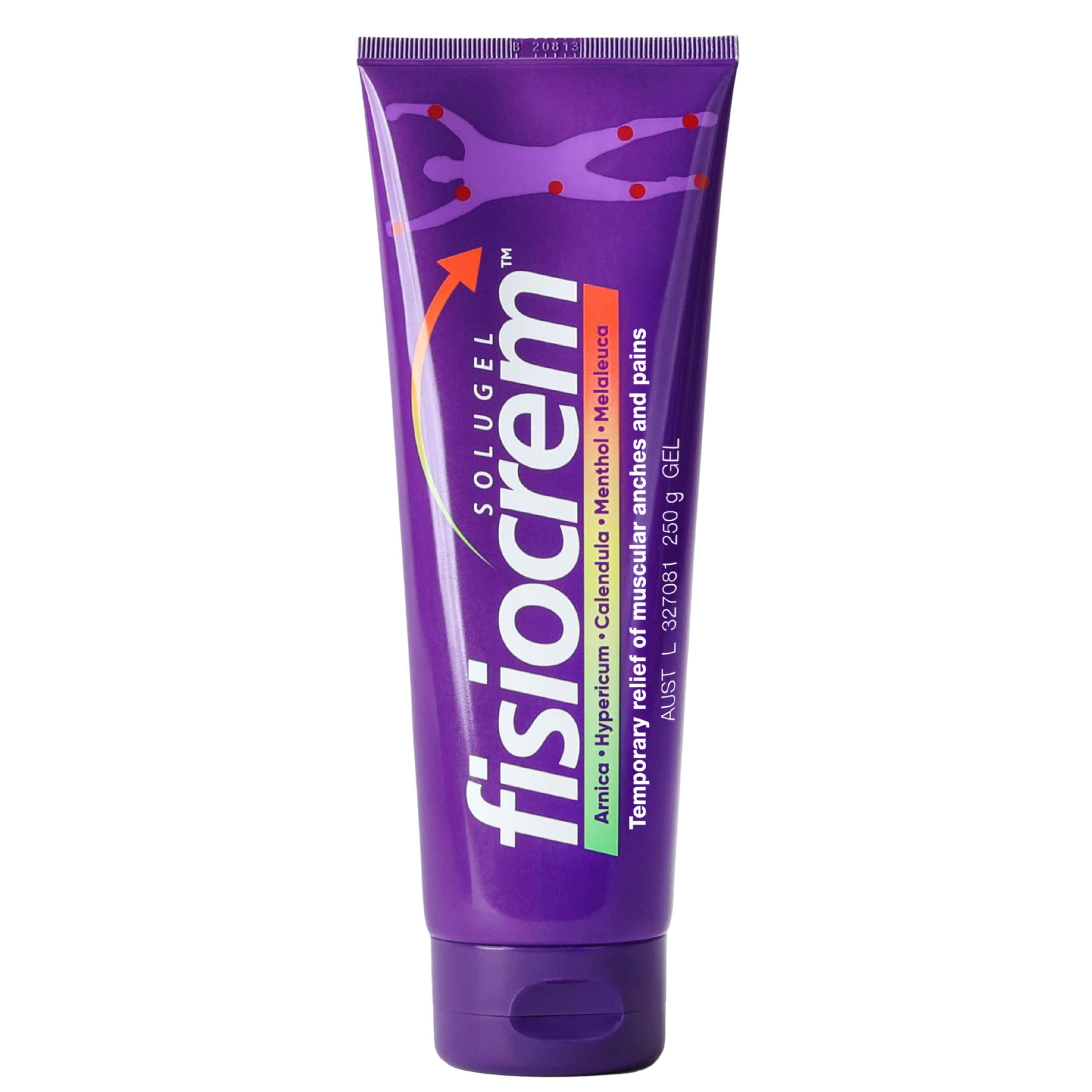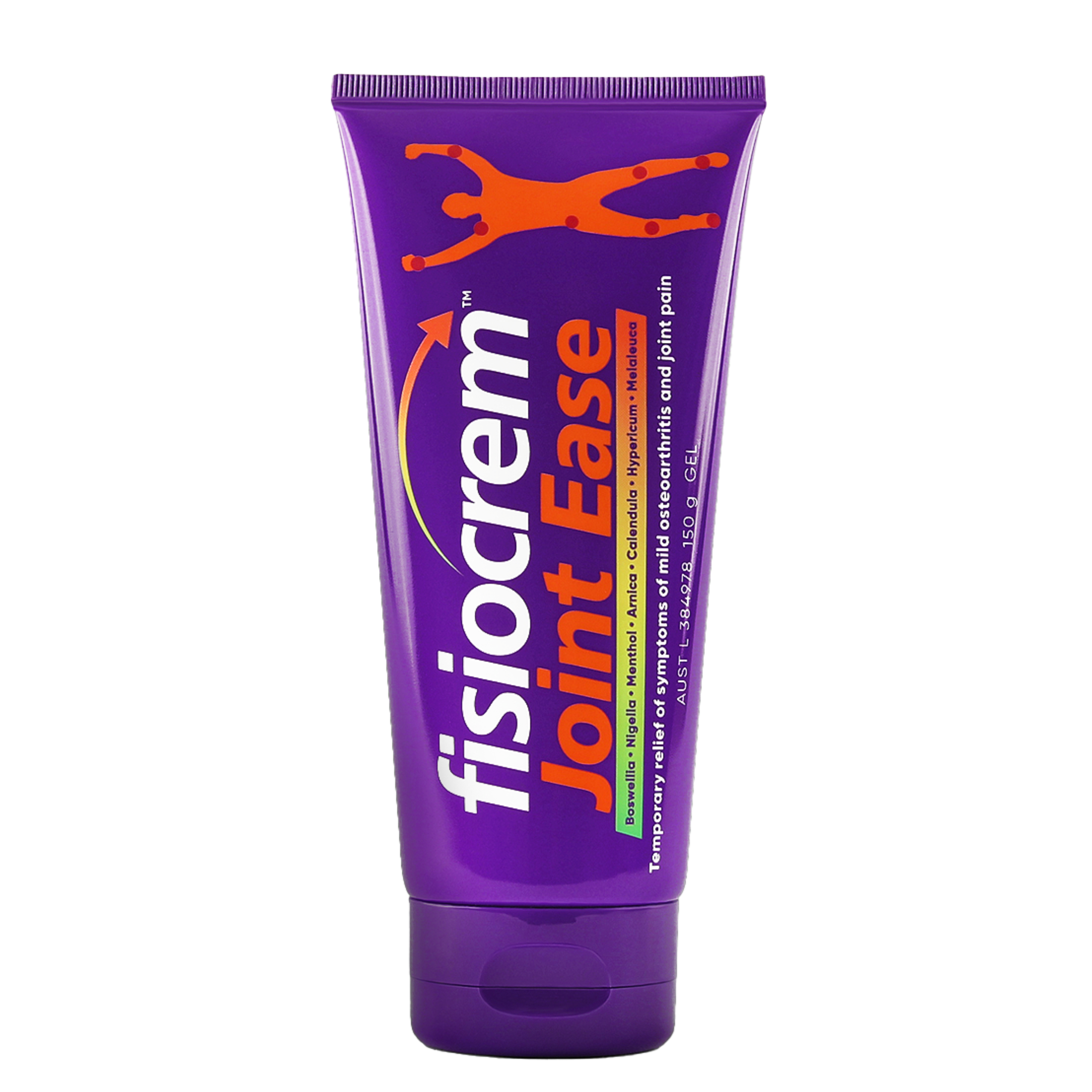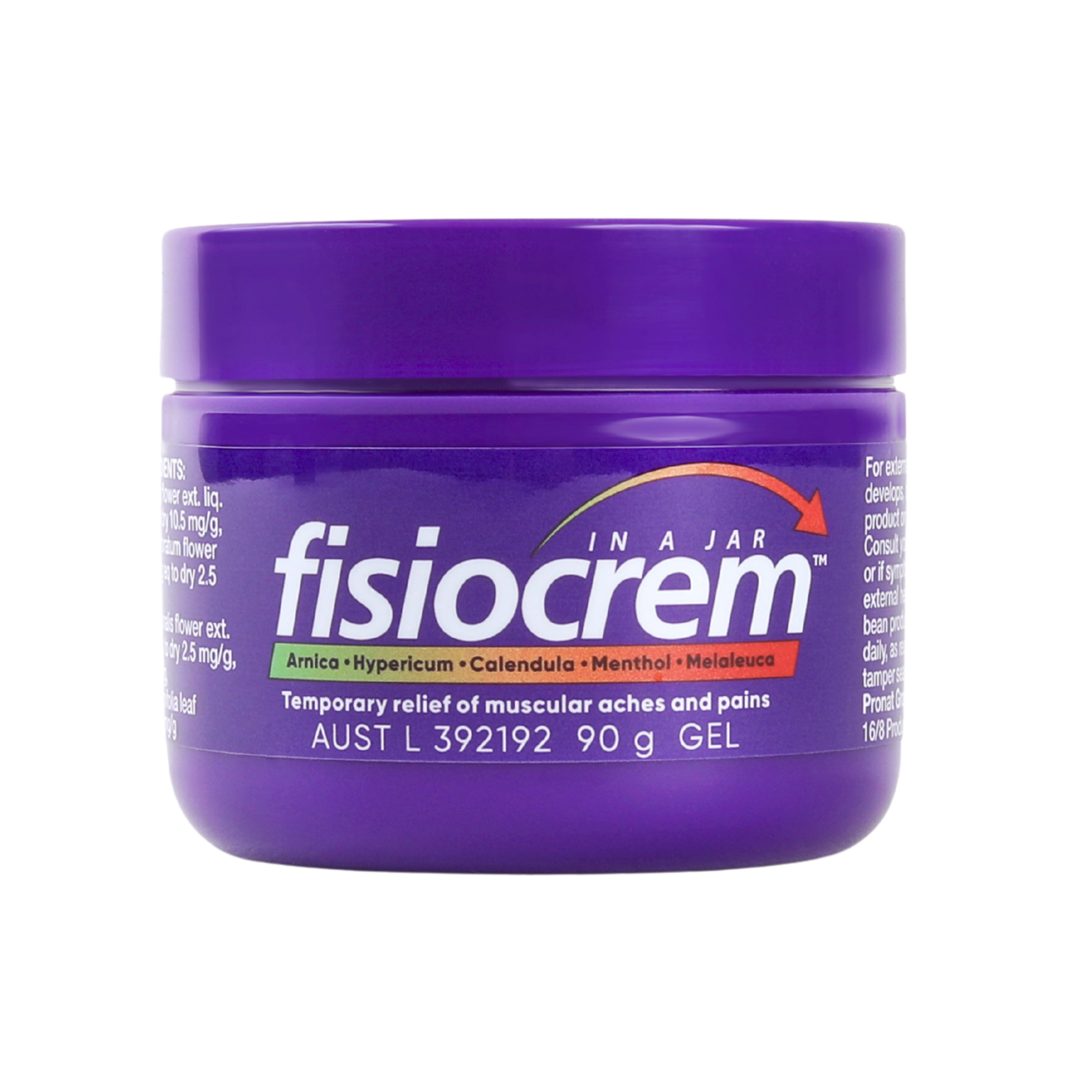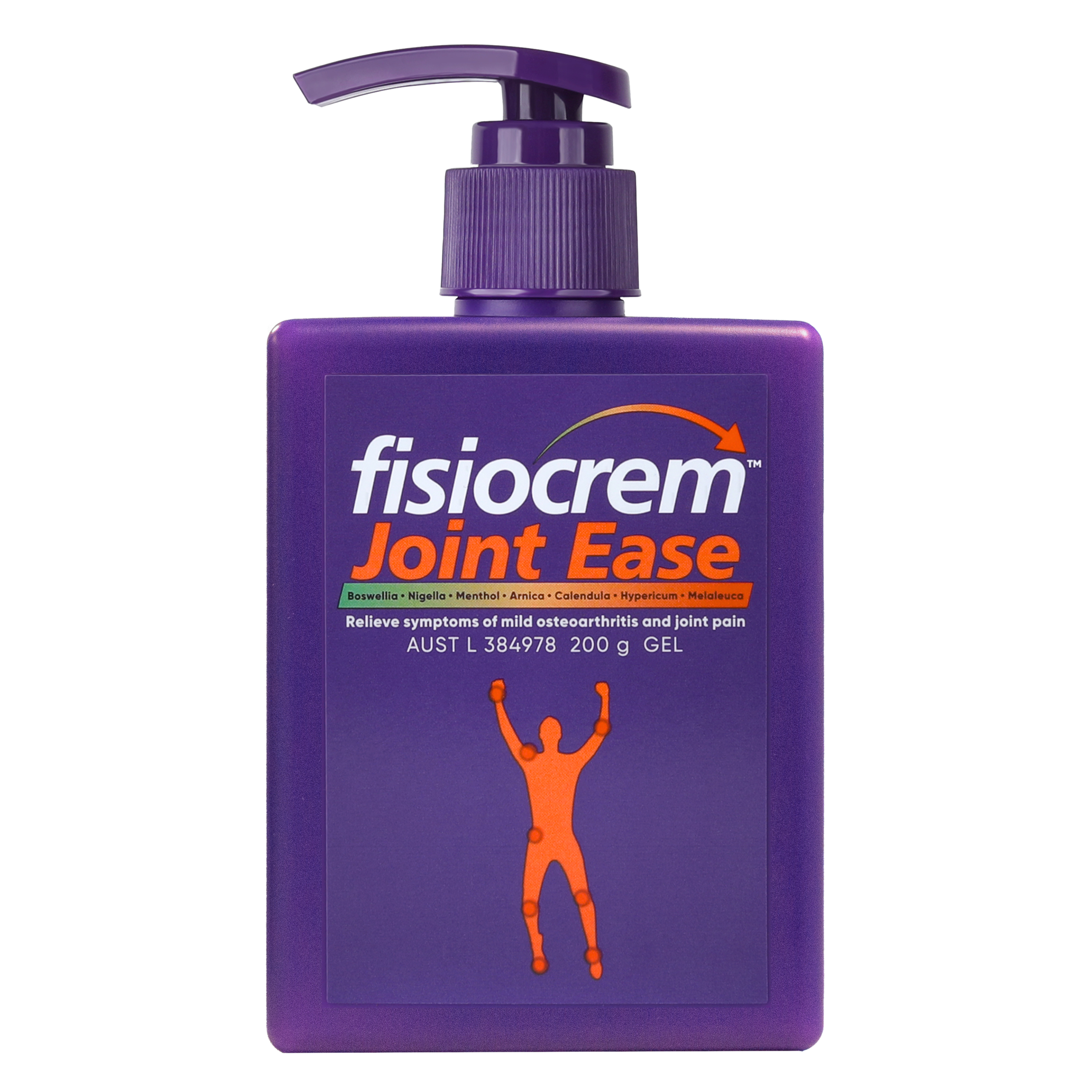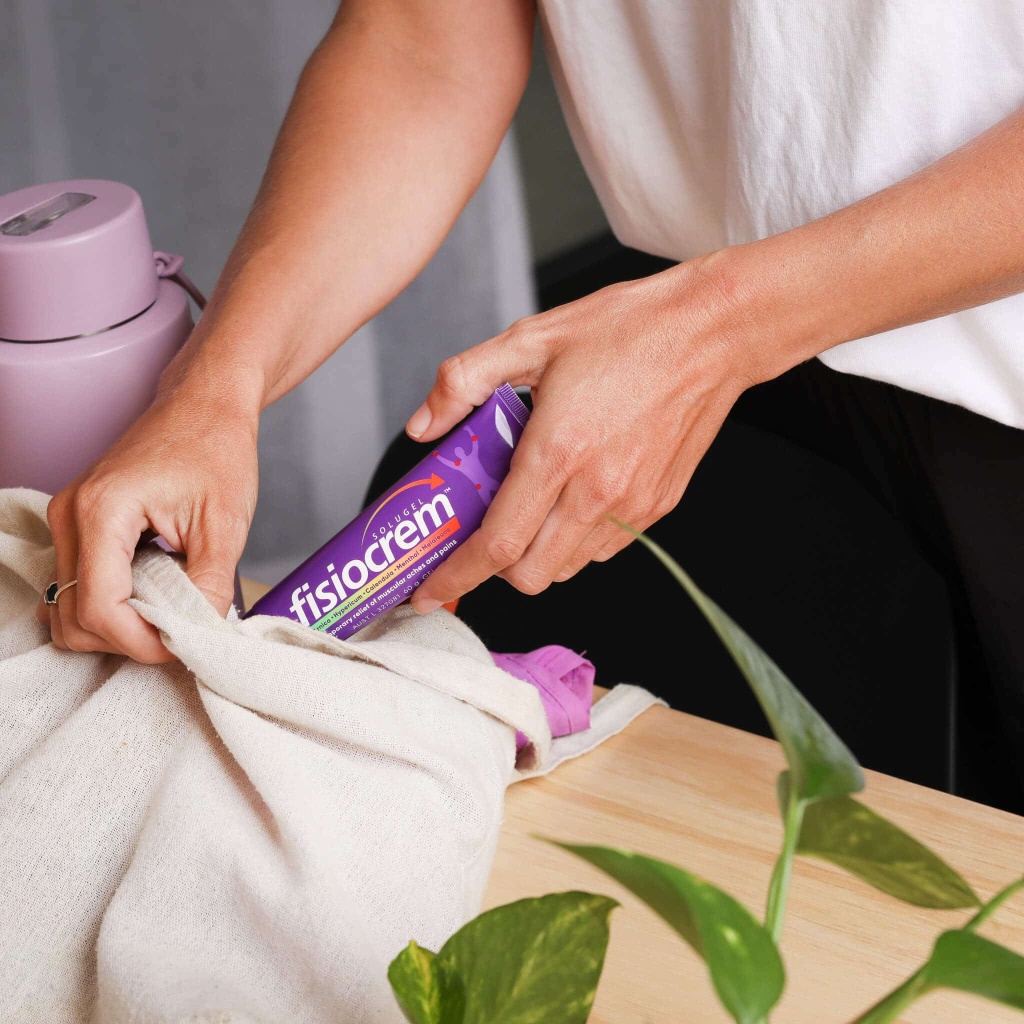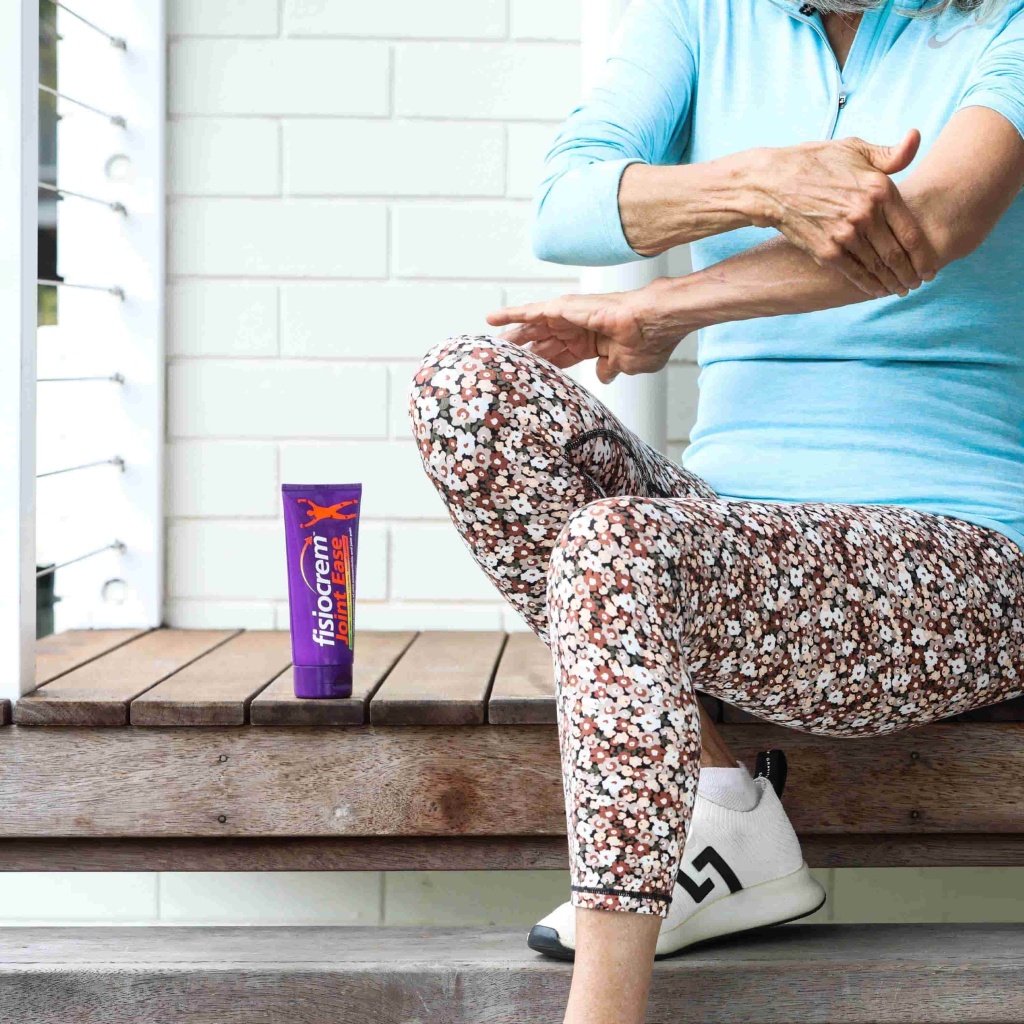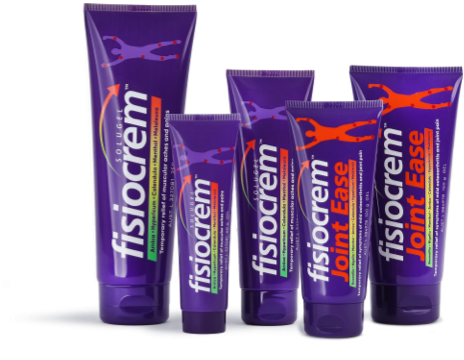An anti-inflammatory diet can help reduce stress, and depression and help relieve muscle and joint pain. Moreover, a decreased consumption of pro-inflammatory foods can help improve sleep quality, therefore improving one’s quality of life (Sala-Climent et al., 2023).
What Is Inflammation and Why Does It Matter?
Inflammation is the body’s primary response to injury, infection or irritation (Rankin, 2004)(Rondanelli et al., 2018). Inflammation is caused by the migration of immune cells from the blood vessels to the damaged site to repair damaged tissue (Rondanelli et al., 2018)(Schmid-Schönbein, 2006).
Acute Inflammation
Acute inflammation is the body’s immediate short-term response to injury or infection. Symptoms of acute inflammation can include, redness, swelling, tenderness, pain and reduced function. Please note that if the acute inflammatory phase does not eliminate the pathogen, and resolve the inflammation, the inflammatory process continues to develop into chronic inflammation. If inflammation is prolonged and ongoing it is important to see a healthcare professional as it may be a sign of a more serious condition or disorder (Rondanelli et al., 2018).
How Your Diet Can Influence Muscle & Joint Pain
Diet and nutrition are modifiable lifestyle factors that can impact inflammation and pain (Galland, 2010)(Philpot & Johnson, 2019). A diet with fruit, vegetables, olive oil, nuts, grains and legumes (e.g. Mediterranean diet), with adequate nutrients such as omega-3, and magnesium coupled with a reduction in processed foods can help to reduce inflammation (Galland, 2010)(Philpot & Johnson, 2019). These anti-inflammatory foods can moderate pain and improve functional loss associated with musculoskeletal conditions such as mild osteoarthritis, low back pain and decreased functional abilities (Towery et al., 2018). A low-inflammatory diet can be useful for not only reducing inflammation but also assisting with weight loss. A reduction in excess weight load placed on the joints and muscles improves physical function and reduces joint and muscle pain (Genel et al., 2020).

Eat for Relief: Foods That Help (and Hurt)
Below is a list of foods that can help moderate and reduce inflammation include:
- Fruits (Wu & Schauss, 2012). Citrus fruits such as oranges, lemons, and grapefruits are high in vitamin C and possess anti-inflammatory and antioxidant properties (Majdan et al., 2022).
- Berries including blueberries, strawberries, raspberries, and blackberries help to reduce stress and inflammation (Wu & Schauss, 2012)(Majdan et al., 2022).
- Vegetables that help with inflammation include: tomatoes, olives, garlic, broccoli, and leafy greens like spinach and kale (Wu & Schauss, 2012)(Lapuente et al., 2019).
- Nuts including almonds, walnuts, pistachios, cashews and hazelnuts (Wu & Schauss, 2012)(Salas-Salvadó et al., 2008).
- Wholegrains such as oats, barley, brown rice and quinoa (Wu & Schauss, 2012)(Lefevreet al., 2012).
- Fish are rich in omega-3 fatty acids. Types of fish that help reduce inflammation include Salmon, Mackerel, and Sardines (Ellulu et al., 2015).


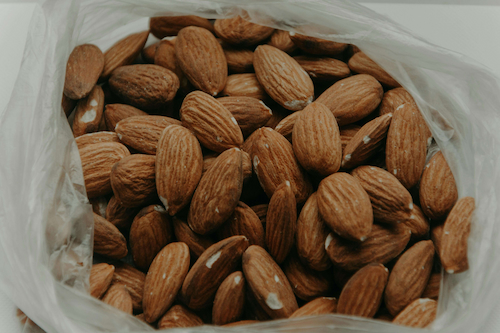
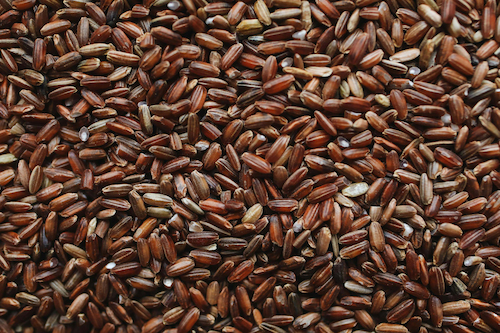
Foods to limit or avoid include:
- Red meat and processed meats like bacon, sausages and deli meats (Yu et al. 2024).
- Refined carbohydrates such as white bread, pastries and other processed grains (Yu et al. 2024).
- Alcohol (Yu et al. 2024).
- Added sugars: Sugary beverages like Coke, and desserts (Yu et al. 2024).
- Saturated fats & trans fats: Fried foods and processed snacks (Yu et al. 2024).
While diet plays a key role in managing inflammation, combining it with targeted support can enhance relief. For example, a joint pain cream can help ease inflammation and support joint pain relief, while a muscle pain relief cream may be beneficial for muscle aches, sprains, and strains.
Cooking Methods Make a Difference.
The anti-inflammatory properties of foods can be modified, increased or decreased as a result of particular cooking methods such as boiling, steaming or frying (Gunathilake, et al. 2018). The cooking methods of, raw, boiling, pan-frying, and toasting that have no added fats, and no added oil are associated with positive differences in several inflammatory markers (Rodríguez-Ayala et al., 2022)(Moreno-Franco et al. 2021). These include kidney function, vitamin D, thyroid hormones, and the preservation of key food nutrients (Rodríguez-Ayala et al., 2022)(Moreno-Franco et al. 2021). Cooking methods such as deep frying and stewing showed detrimental inflammatory profiles including lower levels of vitamin D (Rodríguez-Ayala et al., 2022). Herbs and spices beyond their seasoning properties, can also have a systematic impact on inflammation (Charneca et al, 2023). Herbs and spices such as cinnamon, garlic, coriander, ginger, turmeric, and saffron are popular spices to help reduce inflammation (Baliga et al., 2015). Curcumin is an active component found within turmeric. Curcumin has demonstrated potential as a treatment agent for mild osteoarthritis, a disease with an underlying inflammatory cause (Chin, 2016). It is effective in helping to reduce pain, and improve physical function, thus improving mild osteoarthritis suffers quality of life (Chin, 2016).
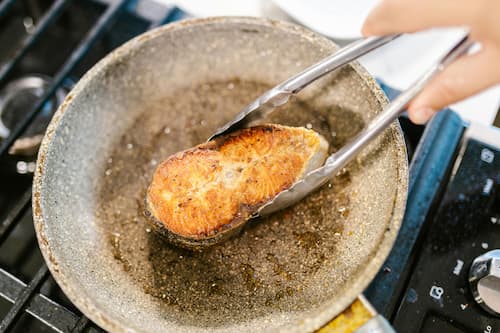
References
1) Baliga, M., Mane, P., Nallemgera, J., Thilakchand, K., Kalekhan, F. (2015). Foods and Dietary supplements in the prevention and treatment of disease in older adults, (41-49).
2) Charneca, S., Hernando, A., Costa-Reis, P., & Guerreiro, C. S. (2023). Beyond Seasoning-The Role of Herbs and Spices in Rheumatic Diseases.
3) Chin, K. (2016). Drug Design, Development and therapy, (10) 3029-3042.Chin, K.-Y. (2016). Doi:10.2147/dddt.s117432
4) Ellulu, M. S., Khaza’ai, H., Abed, Y., Rahmat, A., Ismail, P., & Ranneh, Y. (2015). Role of fish oil in human health and possible mechanism to reduce the inflammation. Inflammopharmacology, 23(2–3), 79–89.
5) Gunathilake, K. D. P. P., Ranaweera, K. K. D. S., & Rupasinghe, H. P. V. (2018). Influence of Boiling, Steaming and Frying of Selected Leafy Vegetables on the In Vitro Anti-inflammation Associated Biological Activities.
6) Rodríguez-Ayala, M., Banegas, J. R., Ortolá, R., Gorostidi, M., Donat-Vargas, C., Rodríguez-Artalejo, F., & Guallar-Castillón, P. (2022). Cooking methods are associated with inflammatory factors, renal function, and other hormones and nutritional biomarkers in older adults.
7) Moreno-Franco, B., Rodríguez-Ayala, M., Donat-Vargas, C., Sandoval-Insausti, H., Rey-García, J., Lopez-Garcia, E., Benegas, J., Rodríguez-Artalejo, F., Guallar-Castillón, P. (2021). Association of Cooking Patterns with Inflammatory and Cardio-Metabolic Risk Biomarkers.
8) Galland, L. (2010). Diet and Inflammation. Nutrition in Clinical Practice, 25(6), 634–640.
9) Genel, F., Kale, M., Pavlovic, N., Flood, V. M., Naylor, J. M., & Adie, S. (2020). Journal of Nutritional Science.
10) Lapuente, M., Estruch, R., Shahbaz, M., & Casas, R. (2019). Relation of Fruits and Vegetables with Major Cardiometabolic Risk Factors, Markers of Oxidation, and Inflammation. Nutrients, 11 (10), 2381.
11) Lefevre, M., Jonnalagadda, S. (2012). Effect of whole grains on markers of subclinical inflammation. Nutrition Reviews, 70 (7), 387–396.
12) Majdan, M., & Bobrowska-Korczak, B. (2022). Active Compounds in Fruits and Inflammation in the Body. Nutrients, 14 (12), 2496.
13) Philpot, U., & Johnson, M. I. (2019). Diet Therapy in the Management of Chronic Pain: Better Diet Less Pain?. Pain Management, 9(4), 335–338.
14) Rankin, J. (2004). Biological Mediators of Acute Inflammation. AACN Advanced Critical Care, 15 (1), 3-17.
15) Rondanelli, M., Faliva, M. A., Miccono, A., Naso, M., Nichetti, M., Riva, A., Fabio, G., De Gregori, M., Peroni, G., Perna, S. (2018). Food pyramid for subjects with chronic pain: foods and dietary constituents as anti-inflammatory and antioxidant agents. Nutrition Research Reviews, 31 (1).
16) Sala-Climent, M., López de Coca, T., Guerrero, M., Muñoz, F., López-Ruíz, M., Moreno, L., Alacreu, M., Dea-Ayuela, M. (2023). The effect of an anti-inflammatory diet on chronic pain: a pilot study.
17) Salas-Salvadó, J., , Casas-Agustench, P., Murphy, M., López-Uriarte, P., Bulló, M. (2008). The effect of nuts on inflammation.
18) Schmid-Schönbein, G. W. (2006). Annual Review of Biomedical Engineering, 8(1), 93–151.
19) Towery, P., Guffey, S., Doerflein, C., Stroup, K., Saucedo, S., Taylor, J. (2018). Chronic musculoskeletal pain and function improve with a plant-based diet. Complementary Therapies in Medicine, 40, 64-69.
20) Wu, X., & Schauss, A. G. (2012). Mitigation of Inflammation with Foods. Journal of Agricultural and Food Chemistry, 60(27), 6703–6717.
21) Yu X, Pu H, Voss M. (2024). Overview of anti-inflammatory diets and their promising effects on non-communicable diseases. British Journal of Nutrition. 2024;132(7):898-918.
Inflammation is one of the body’s first biological responses within the immune system (Zhu et al., 2017). The body aims to repair tissue associated with infection, injury or irritation (Schmid-Schönbein, 2006). Some common causes of inflammation include obesity, stress, injury and bacteria within the body (Lieberthal et al., 2015)(Cristofori et al., 2021)(Liu et al., 2017).
Inflammation can be a symptom of a more serious condition or disease, like mild arthritis and mild osteoarthritis (OA)(Lieberthal et al., 2015). It can lead to pain, sleeping issues, fatigue, and mood alterations that can drastically affect one’s lifestyle (Dantzer et al., 2008).
Luckily, there are some factors we can change to reduce and manage inflammation. These include what we eat, how much we exercise, not smoking, and drinking less alcohol (Kantoret al., 2013). Other good ways to manage inflammation include oral and topical anti-inflammatories. These can help reduce inflammation and keep you moving comfortably.
Below are some helpful tips and guidance to help you reduce and manage inflammation in the body so you can keep moving.
Anti-Inflammatory Diet: What To Eat (and Avoid)
Nutrition and dietary patterns can influence the body’s inflammatory response (Galland, 2010). Therefore, a diet of high-antioxidant foods and drinks can help combat inflammation (Lu et al., 2015). Just as certain foods can help reduce inflammation, certain foods can also increase it.
Below is a list of anti-inflammatory foods that fight inflammation.
- Fish: Salmon & tuna (Triggs et al., 2010)
- Garlic & ginger (Parvez et al., 2019)
- Nuts: Almonds & walnuts (Parvez et al., 2019) (Rajaram et al., 2023)
- Leafy greens: Spinach & kale (Randhawa et al., 2015)
- Grains: Barley and wheat (Parvez et al., 2019)
- Fruits: Blueberries, strawberries, cherries, grapes (Joseph et al., 2014) (Parvez et al., 2019)
- Vegetables: Potatoes, carrots, and red peppers (Reddivari et al., 2019) (Parvez et al., 2019)

Certain processed and refined foods can contribute to and worsen inflammation, these include:
- Salt (Parvez et al., 2019) (Myles, 2014)
- Gluten (Myles, 2014)
- Sugar (Parvez et al., 2019): Soft drinks and desserts
- Saturated fat, trans fat, omega 6 fatty acids (Parvez et al., 2019): Beef and fried foods
- Alcohol (Parvez et al., 2019)
Having a balanced diet can help reduce and relieve inflammation and help support a healthy and active lifestyle. Just remember everything in moderation.

Movement & Recovery Around Inflammation
Exercise can both cause and reduce inflammation (Woods et al., 2011). However regular exercise has far more health benefits than a sedentary lifestyle that can lead to adverse health outcomes, such as obesity (Wanigatunga et al., 2022) (Febbraio, 2007).
Exercise can cause muscle and connective tissue damage, typically when exercise is done at high intensities for a prolonged duration (Woods et al., 2011). This is typically referred to as delayed onset muscle soreness (DOMS). This temporary discomfort occurs as the body adapts to the new overload stress or new level of activity. Eventually leading to increased strength within the muscles.
Regular cardiovascular exercise training can help reduce and moderate inflammation. Exercise activity such as brisk walking or low-impact activities, can help improve circulation and reduce stiffness (Woods et al., 2011).
Low-impact exercises can include:
- Swimming – Reduces pressure on the joints
- Yoga or stretching – Helps to maintain flexibility and mobility.
- Inadequate sleep can also lead to increased inflammation.
Therefore it is important to maintain a good sleep duration and ensure you have a quality sleep through good sleeping patterns. This can help reduce inflammation and allow the body time to recover (Simpson et al., 2008).
Anti-Inflammatory Creams/Gels For Pain: What You Need to Know
Topical anti-inflammatory gels and creams have many advantages over oral anti-inflammatory tablets, with reduced incidence of systematic side effects (Stanos et al., 2015)(Argoff et al., 2013). Topical creams/gels are effective in the management of inflammation and pain, associated with conditions like mild osteoarthritis (Stanos et al., 2015).
Topical pain relief creams/gels like fisiocrem Solugel & fisiocrem Joint Ease can help relieve inflammation and soreness. Both fisiocrem products can be used in conjunction with oral anti-inflammatories, unlike other topical gels.
fisiocrem Solugel - Muscle pain & inflammation
fisiocrem Solugel is a clinically tested pain relief gel for muscle pain and soft tissue injuries (Ramon et al., 2022). In a randomised, double-blind, placebo-controlled, clinical trial fisiocrem Solugel was shown to significantly reduce pain and improve mobility within minutes of application; used twice daily, it continued to improve musculoskeletal pain and mobility over 14 days, showing the benefit of both immediate and longer-term pain relief (Ramon et al., 2022)
fisiocrem Joint Ease - Mild Joint pain & inflammation
fisiocrem Joint Ease is formulated to help relieve symptoms associated with mild arthritis. In particular, it helps reduce inflammation and stiffness within the joint area improving joint mobility.
FAQ's - All about inflammation
Do’s: Eat a healthy balanced diet rich with anti-oxidant foods. Develop regular exercise habits and ensure adequate sleeping patterns. Utilise topical pain relief products to manage inflammation and swelling.
Don’ts: Eat a diet high in sugar, fats and salt. Operate on minimal sleep and consume large sums of alcohol.
A traditional Mediterranean diet has a high ratio of monounsaturated (MUFA) to saturated (SFA) fats and polyunsaturated fatty acids (PUFAs). This diet has an abundance of fruits, vegetables, legumes, and grains, that have anti-inflammatory effects (Galland, 2010).
A traditional Mediterranean diet has anti-inflammatory properties. This diet places emphasis on fruits, vegetables, and olive oil consumption, with limited meat consumption (Tsigalou et al., 2020).
An anti-inflammatory diet is rich in omega-3s and polyphenols. An important aspect of an anti-inflammatory diet is the reduced intake of omega-6 fatty acids (Sears et al., 2015).
An anti-inflammatory cream like fisiocrem Solugel and fisiocrem Joint Ease can reduce swelling and pain. They help alleviate discomfort and reduce symptoms from sprains, strains, sports injuries and soft tissue trauma.
A topical anti-inflammatory cream like fisiocrem Solugel and fisiocrem Joint Ease can help reduce swelling and relieve pain. Explore the fisiocrem product range.
In conclusion making mindful changes to diet, exercise habits, and lifestyle can help reduce inflammation and improve movement and health outcomes. Incorporating topical pain relief creams/gels into your routine can assist with pain management and inflammation.
Discover how fisiocrem can support your recovery.
References
1) Argoff, C. E. (2013). Topical Analgesics in the Management of Acute and Chronic Pain. Mayo Clinic Proceedings, 88(2), 195–205.
2) Cristofori, F., Nadia Dargenio, V., Dargenio, C., Leonardo Miniello, V., Barone, M., Francavilla, R. (2021). Anti-Inflammatory and Immunomodulatory Effects of Probiotics in Gut Inflammation: A Door to the Body. Intestinal Dysbiosis in Inflammatory Diseases, 12.
3) Dantzer, R., Capuron, L., Irwin, M., Miller, A., Ollat, H., Perry, V., Rousey, S., Yirmiya, R. (2008). Identification and treatment of symptoms associated with inflammation in medically ill patients, 33-22.
4) Febbraio, M. A. (2007). Exercise and inflammation. Journal of Applied Physiology, 103(1), 376–377.
5) Galland, L. (2010). Diet and Inflammation. Nutrition in Clinical Practice, 25(6), 634–640.
6) Hess, J. M., Stephensen, C. B., Kratz, M., & Bolling, B. W. (2021). Exploring the Links between Diet and Inflammation: Dairy Foods as Case Studies. Advances in Nutrition, 12.
7) Joseph, S. V., Edirisinghe, I., & Burton-Freeman, B. M. (2014). Berries: Anti-inflammatory Effects in Humans. Journal of Agricultural and Food Chemistry, 62(18), 3886–3903.
8) Kantor, E. D., Lampe, J. W., Kratz, M., & White, E. (2013). Lifestyle Factors and Inflammation: Associations by Body Mass Index.
9) Lieberthal, J., Sambamurthy, N., Scanzello, R. (2015). Retrieved from: https://www.sciencedirect.com/science/article/pii/S106345841501300X
10) Lieberthal, J., Sambamurthy, N., Scanzello, R. (2015). Retrieved from: https://www.sciencedirect.com/science/article/pii/S106345841501300X
11) Liu, y., Wang, Y., Jiang, C. (2017). Inflammation: The Common Pathway of Stress-Related Diseases. Brain Health and Clinical Neuroscience, 11.
12) Lu, C., Yen, C. (2015) Antioxidative and anti-inflammatory activity of functional foods, 2.
13) Metsios, G. S., Moe, R. H., & Kitas, G. D. (2020). Exercise and inflammation. Best Practice & Research Clinical Rheumatology, 34(2), 101504.
14) Myles, I. A. (2014). Fast food fever: reviewing the impacts of the Western diet on immunity. Nutrition Journal, 13(1).
15) Parvez, M., Akanda, K. (2019). Foods and Arthritis: An Overview, 3-22
16) Ramon et al Ortho & Rheum Open Access J 20(1): OROAJ.MS.ID.556028 (2022) This study was funded by fisiocrem.
17) Randhawa, M. A., Khan, A. A., Javed, M. S., & Sajid, M. W. (2015). Chapter 18 – Green Leafy Vegetables: A Health Promoting Source. 205-220.
18) Rajaram, S., Damasceno, N. R. T., Braga, R. A. M., Martinez, R., Kris-Etherton, P., & Sala-Vila, A. (2023). Effect of Nuts on Markers of Inflammation and Oxidative Stress: A Narrative Review. 15(5), 1099.
19) Reddivari, L., Wang, T., Wu, B., & Li, S. (2019). Potato: an Anti-Inflammatory Food. American Journal of Potato Research, 96(2), 164–169.
20) Schmid-Schönbein, G. (2006). Analysis of inflammation. Annual Review of Biomedical Engineering, 8(1), 93–151.
21) Sears, B. (2015). Anti-inflammatory Diets. Journal of the American College of Nutrition, 34(sup1), 14–21.
22) Simpson, N., & Dinges, D. F. (2008). Sleep and Inflammation. Nutrition Reviews, 65(3), S244–S252.
23) Stanos, S. P., & Galluzzi, K. E. (2015). Topical Therapies in the Management of Chronic Pain. Postgraduate Medicine, 125(1), 25–33.
24) Triggs, C. M., Munday, K., Hu, R., Fraser, A. G., Gearry, R. B., Barclay, M. L., & Ferguson, L. R. (2010). Dietary factors in chronic inflammation: Food tolerances and intolerances of a New Zealand Caucasian Crohn’s disease population. 690(1), 123–138.
25) Tsigalou, C., Konstantinidis, T., Paraschaki, A., Stavropoulou, E., Voidarou, C., & Bezirtzoglou, E. (2020). Mediterranean Diet as a Tool to Combat Inflammation and Chronic Diseases. An Overview. Biomedicines, 8(7), 201.
26) Wanigatunga, A. A., Chiu, V., Cai, Y., Urbanek, J. K., Mitchell, C. M., Miller, E. R., Christenson, R. H., Rebuck, H., Michos, E. D., Juraschek, S. P., Walston, J., Xue, Q.-L., Bandeen-Roche, K., Appel, L. J., & Schrack, J. A. (2022). Patterns of Daily Physical Movement, Chronic Inflammation, and Frailty Incidence, 281-288.
27) Woods, J. A., Wilund, K. R., Martin, S. A., & Kistler, B. M. (2011). Exercise, Inflammation and Aging. Aging and Disease, 3(1), 130.
28) Zhu, F., Du, B., & Xu, B. (2017). Anti-inflammatory effects of phytochemicals from fruits, vegetables, and food legumes: A review. Critical Reviews in Food Science and Nutrition, 58(8), 1260–1270.
fisiocrem Solugel vs fisiocrem Joint Ease
When it comes to managing pain, from sore muscles, sprains, or mild arthritis, selecting the right topical treatment can greatly improve your comfort and recovery.
fisiocrem Australia offers two effective topical products: fisiocrem Solugel and fisiocrem Joint Ease. In this blog, we will discuss the differences between the two gels. We will also discuss their benefits and answer common questions about relieving muscle and mild joint pain.
fisiocrem Solugel - Muscle pain relief
Crafted to alleviate muscle-related pain and mild sports injuries. fisiocrem Solugel offers relief for a diverse range of individuals. This includes people with back pain from work, muscle pain, and health professionals looking for treatment options for clients.

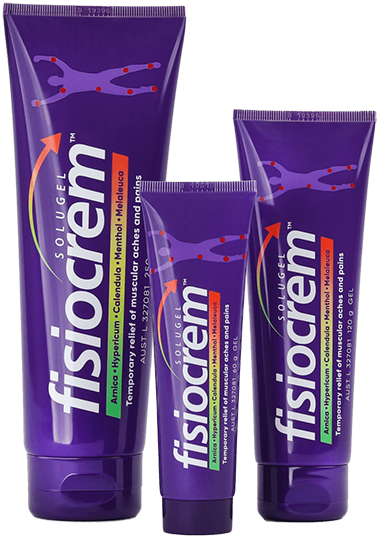
Contains 5 Active Ingredients:
fisiocrem Solugel expertly combines five powerful active ingredients: Arnica, Hypericum, Calendula, Melaleuca, and Menthol. The ingredients are carefully balanced to help relieve muscle pain, speed up recovery after exercise, and work together simultaneously. This precise formulation also ensures that the product remains non-greasy and absorbs well into the skin.
A clinical study has shown that the specific percentages of these active ingredients deliver effective results. Since its development, we have adhered to this formula, ensuring consistent, high-quality muscle pain relief. Our commitment to maintaining this original formula ensures that fisiocrem Solugel continues to provide the reliable results our customers depend on (Ramon et al, 2022).
Key Benefits:
- Aids in the healing of minor bod tissue injuries
- Relieve symptoms of soft body tissue trauma
- Helps in the healing of minor muscle injuries
- Relieve mild muscle inflammation
- Helps in the management of muscle sprain and strain
- Relieve muscle pain and soreness
- Relieve bruise pain and swelling
- Helps improve muscle recovery time
You can use fisiocrem Solugel alongside blood-thinning medications.
fisiocrem Joint Ease - Mild arthritis pain relief
Formulated to target specific joint concerns including mild joint pain, mild arthritis relief, and mild osteoarthritis. fisiocrem Joint Ease caters to the needs of individuals, particularly the elderly and those facing joint health challenges. fisiocrem Joint Ease is for those seeking a reliable option for improved mobility and joint comfort.

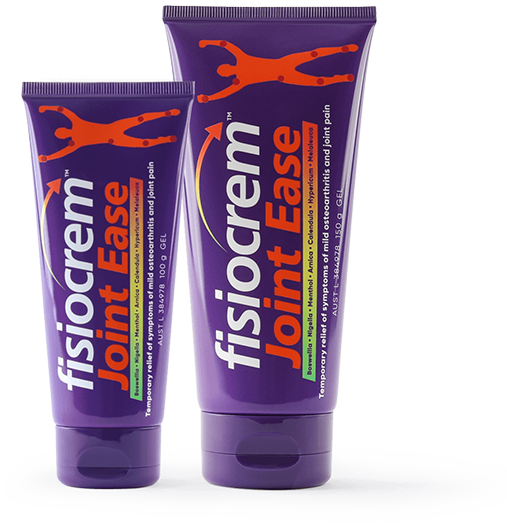
Contains 7 Active Ingredients:
fisiocrem Joint Ease features the same 5 active ingredients as fisiocrem Solugel, plus 2 additional botanical ingredients: Boswellia and Nigella. The original actives found within fisiocrem Solugel are in lower percentages within fisiocrem Joint Ease. This is to avoid diminishing the effectiveness of the new additional botanical ingredients. This balanced formulation also ensures the gel remains non-greasy, absorbs well into the skin, and provides maximum comfort.
Key Benefits:
- Relieve mild joint aches and pains
- Relieve symptoms of mild arthritis and mild osteoarthritis
- Helps promote healthy joint function
- Relieve mild joint inflammation and swelling
- Maintain joint mobility and flexibility
- Relieve mild joint pain and soreness
- Helps improve joint mobility
- Relieve mild joint stiffness
What do both products do?
Both fisiocrem Solugel and fisiocrem Joint Ease are topical anti-inflammatories, suitable for use alongside oral anti-inflammatories or diclofenac tablets.
Before using our products, talk to your doctor if you are taking medications or have health conditions. This will ensure that it is suitable for you. Your doctor can provide guidance on whether our products are suitable for you based on your individual health needs.
Comparing fisiocrem Solugel and fisiocrem Joint Ease
Both products provide pain relief, but their formulations cater to different needs.
fisiocrem Solugel is best suited for muscle pain, such as soreness from physical activity or minor muscle injuries.
fisiocrem Joint Ease relieves mild joint pain and reduces symptoms of mild arthritis, like joint stiffness. This makes it an excellent option for individuals dealing with these joint-related conditions.
Pain Management with fisiocrem Products
Managing pain effectively often requires a combination of treatments. Here are some tips for getting the most out of fisiocrem products:
- Regular Application: Consistently applying the gel to the affected area can help maintain pain relief and support healing.
- Gentle Massage: Gently massaging the gel into the skin can improve absorption and enhance its effects.
- Using fisiocrem along with other treatments like physiotherapy, stretching, and rest can help manage pain effectively.
Choosing the right pain relief cream can significantly impact your comfort and recovery. Whether you’re dealing with muscle pain or mild arthritis, fisiocrem Solugel and fisiocrem Joint Ease are effective treatment options that fit your needs. Understanding the differences and benefits of each product helps you make better decisions and manage your pain more effectively.
You can find both fisiocrem Solugel and fisiocrem Joint Ease, Australian pain relief products, in stores nationwide.
FAQs: Answering Your Questions on Pain Relief
What is the best ointment for muscular and mild joint pain?
fisiocrem Solugel is more suitable for muscular pain.
We recommend fisiocrem Joint Ease for mild joint pain, including mild arthritis and mild osteoarthritis.
What are the best ways to get rid of muscle pain?
Regularly using a muscle pain cream like fisiocrem Solugel can help reduce muscle pain. Resting, staying hydrated, and doing gentle stretches are also beneficial. These actions can all work together to alleviate muscle pain.
What are some ointments that are good for mild joint pain?
fisiocrem Joint Ease specifically targets mild joint pain and provides effective relief for mild arthritis, supporting joint health.
What is the best cream for a sprained ankle?
For a sprained ankle, fisiocrem Solugel can help reduce inflammation and pain, promoting faster recovery.
Anti-inflammatory creams and gels – Do they work?
Yes, anti-inflammatory creams and gels like fisiocrem Solugel and fisiocrem Joint Ease can effectively reduce inflammation and provide temporary pain relief.
What is an anti-inflammatory cream?
An anti-inflammatory cream contains ingredients that help reduce inflammation and swelling in the affected area, providing pain relief and promoting healing.
What is the best soothing gel for muscle pain?
fisiocrem Solugel is an excellent choice for soothing muscle pain because of its blend of active ingredients.
Which is the best pain relieving cream?
fisiocrem Solugel and fisiocrem Joint Ease are both effective topical treatments. The choice depends on whether the pain is muscular or joint related.
How do pain relief creams relieve pain?
Pain relief creams absorb into the skin to bring anti-inflammatory and pain-relieving ingredients to the affected area.
Which pain relieving cream works best for mild arthritis?
fisiocrem Joint Ease is specifically formulated to temporarily relieve mild arthritis. It also supports overall joint health and helps to reduce pain.
How does pain relief gel work?
The skin absorbs pain relief gels, delivering ingredients that reduce inflammation and relieve pain in the specific area.
Citations
- Ramon et al Ortho & Rheum Open Access J 20(1): OROAJ.MS.ID.556028 (2022) This study was funded by fisiocrem.
Seasonal Changes and the effect on mild arthritis
Seasonal changes can indeed have a profound impact on individuals with mild arthritis and mild osteoarthritis (Mori et al. 2019). Different weather conditions, such as temperature, pressure, humidity, sunshine, clouds, wind, and rain, can affect mild arthritis symptoms. Therefore, adapting lifestyle strategies to manage mild arthritis effectively throughout the year is important (Iikuni et al. 2007).
As winter sets in, many patients experience a noticeable uptick in musculoskeletal symptoms. This increase in discomfort because of the cold weather, can trigger muscle spasms and reduce blood circulation, causing joint pain and stiffness (Mori et al. 2019). Research shows that colder temperatures can increase pain levels and stiffness in joints (Aikman, 1997).
Understanding the effect of seasonality on joint pain is integral to developing effective management strategies (Mori et al. 2019).
In this article, we’ll explore the intricate relationship between cold weather and mild arthritis, offering practical tips to help you navigate the winter season with greater comfort. We will also introduce you to fisiocrem Joint Ease. A topical solution that helps with mild osteoarthritis, mild arthritis, mild joint pain, and inflammation.
Understanding Cold Weather & Mild Arthritis:
Cold weather can be particularly harsh on those with mild arthritis, intensifying pain and stiffness associated with the condition. The physiological response to cold temperatures plays a significant role in aggravating symptoms.
When exposed to cold air, our blood vessels constrict, reducing blood flow to the extremities of the body such as the hands and feet. The decrease in temperature can increase sensitivity and pain causing the joints to feel stiffer (Cheung, 2015).
Additionally, fluctuations in barometric pressure, often accompanying cold fronts, can further contribute to joint discomfort. An increase in barometric pressure may cause joint discomfort to become more evident (Wu et al. 2022).
The weather not only affects the conditions of mild osteoarthritis symptoms, but it also affects the ease and willingness of patients to seek medical treatment. Heavy rains, snow and intense winds may make visiting health professionals increasingly difficult for patients. Moreover, extreme cold weather may also affect a person’s willingness to engage in outdoor activities (Wu et al. 2022).
Tips for Managing Mild Arthritis in Winter:
1: Stay Warm:
Ensuring proper insulation against the cold is vital for easing mild winter joint pain. Wearing warm clothes, layering, and using heated blankets can preserve body heat and ease joint pain. Remember to cover areas that are prone to pain to stay comfortable during the colder months. Wearing warmer clothes in cold weather can help manage mild arthritis and mild joint pain during winter (Mori et al. 2019).
2: Maintain Physical Activity:
While it may be tempting to hibernate indoors during winter, staying active is crucial for managing mild arthritis. Low-impact exercises such as walking, swimming, or yoga can help maintain joint flexibility and strengthen surrounding muscles (Kettunen et al. 2004).
Need support in staying active with mild arthritis?
Join a virtual group exercise program designed to boost physical activity levels. From home, engage in weekly live sessions led by knowledgeable instructors, guiding personalised routines. The 12-week program offers support, motivation, and resources to seamlessly integrate safe exercises. These tailored exercises help to alleviate discomfort for a more manageable lifestyle.


3: Topical mild arthritis pain relief creams or gels
Topical anti-inflammatory and analgesic creams can help provide relief for mild arthritis, mild osteoarthritis and mild joint pain. Topical creams and gels tend to have fewer side effects when compared to oral medications (Jurca et al. 2020).
Applying a topical mild arthritis pain relief cream directly to the affected joints can help alleviate discomfort and reduce inflammation, allowing for improved mobility and comfort.
You can find fisiocrem Joint Ease online or at your local pharmacy, and Chemist Warehouse.
fisiocrem Joint Ease contains active ingredients including Boswellia and Nigella. It provides temporary relief for mild arthritis and mild joint pain.
Nigella Sativa oil has anti-inflammatory and analgesic effects helping to relieve mild joint pain and swelling (Mahboubi et al. 2018). Boswellia Serrata can help reduce swelling, and pain and ease stiffness (Etzel, 1996).
fisiocrem Joint Ease can help you to keep you moving and feel more comfortable during the winter season.
Incorporating this topical mild arthritis cream into your daily routine can help you manage your symptoms. Enhance your overall well-being during the colder months with fisiocrem Joint Ease.


As winter arrives, managing mild arthritis and mild joint pain becomes a top priority for many. Understanding how cold weather affects mild arthritis symptoms and using proactive strategies can help reduce discomfort and make winter more comfortable.
Remember, fisiocrem is here to support you on your journey, providing topical relief when you need it most.
FAQs:
Why is mild arthritis worse in winter?
Cold weather can cause blood vessels to constrict, leading to increased joint stiffness and pain.
Does cold weather affect mild arthritis?
Yes, changes in temperature and barometric pressure can exacerbate symptoms of mild arthritis.
What are your top tips for dealing with mild arthritis pain in winter?
Stay warm, stay active, and consider incorporating topical pain relief gels like fisiocrem Joint Ease into your routine.
How to treat mild joint pain in the winter?
Focus on warmth, exercise, and topical remedies to alleviate discomfort and improve mobility.
Is mild arthritis worse in winter or summer?
While both seasons present challenges, many individuals report increased pain and stiffness during the colder months.
Citations
- Aikman, H. (1997). International Journal of Biometeorology, 40(4), 192–199.
- Cheung, S. S. (2015). Responses of the hands and feet to cold exposure. Temperature, 2(1), 105–120.
- Etzel, R. (1996). Phytomedicine, 3(1), 91-94.
- Jurca, T., Józsa, L., Suciu, R., Pallag, A., Marian, E., Bácskay, I., Muresan, M., Liana Stan, R., Cevei, M., Cioara, F., Vicas, L., Fehér, P. (2020). Molecules, 26(1).
- Kettunen, J. A., & Kujala, U. M. (2004). Scandinavian Journal of Medicine & Science in Sports, 14(3), 138–142.
- Iikuni, N., Nakajima, A., Inoue, E., Tanaka, E., Okamoto, H., Hara, M., Tomatsu, T., Kamatani, N., Yamanaka, H. (2007). Volume 46(5) 846-848.
- Mahboubi, M., Mohammad Taghizadeh Kashani, Leila., Mahboubi, M. (2018). Phytomedicine, 46, 69-77.
- Mori, H., Sawada, T., Nishiyama, S., Shimada, K., Tahara, K., Hayashi, H., Kato, E., Tago, M., Matsui, T., Tohma, S. (2019). BMC Musculoskeletal Disorders, 20(1).
- Wu, R.-Y., Pan, R.-H., Wu, C.-Y., Chan, C.-L., & Yeh, H.-J. (2022). BMC Musculoskeletal Disorders, 23(1).
Introduction to Mild Osteoarthritis Pain
Mild Osteoarthritis (OA) is a degenerative joint disease that affects millions of people worldwide (Sinusas, 2012). It occurs when the protective cartilage that cushions the ends of your bones wears down over time. As a result, the bones begin to rub against each other, leading to pain, stiffness, and swelling in the affected joints. Mild osteoarthritis pain can significantly impact daily activities and quality of life, making effective pain management crucial.
The Role of Topical Creams in Pain Management
Topical creams offer a convenient and non-invasive way to manage mild osteoarthritis pain. Topical creams and gels are applied directly to the skin over the affected area, delivering targeted pain relief.
These creams can contain various active ingredients, such as menthol, nigella, or capsaicin (Sinusas, 2012). These actives work by numbing the nerves or reducing inflammation in the joints (Mahboubi, 2017).
Topical creams can alleviate pain and stiffness, enhancing joint range of motion for individuals with mild osteoarthritis (Gemmell et al., 2003)(Kraemer et al., 2004).
Introduction to fisiocrem Joint Ease
fisiocrem Joint Ease is a topical cream/gel specifically formulated to provide temporary relief from symptoms associated with mild osteoarthritis pain. Its contains menthol and naturally derived active ingredients, including nigella, boswellia, arnica, calendula, hypericum, and melaleuca. We carefully selected these ingredients for their anti-inflammatory and analgesic properties.
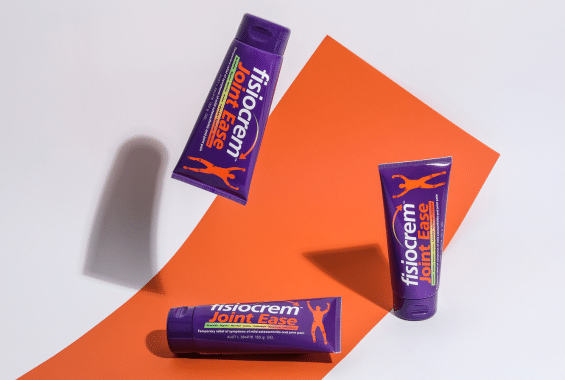
Our hero active Ingredients found within fisiocrem Joint Ease
Nigella Sativa Oil helps to protect cartilage from damage and effectively relieve pain as an anti-inflammatory for individuals with mild osteoarthritis (Kooshki et al., 2016)(Azizi et al., 2019)(Ghamari, et al., 2023).
Boswellia helps alleviate pain and stiffness, improves joint function, and reduces swelling, providing effective relief for individuals suffering from mild osteoarthritis. This active ingredient work together to provide comprehensive relief for those experiencing the discomfort and limitations associated with mild osteoarthritis (Bannuru et al., 2018)(Kimmatkar et al., 2003).
Efficacy of fisiocrem Joint Ease in Relieving Mild Osteoarthritis Pain
fisiocrem Joint Ease offers multiple benefits for individuals suffering from mild osteoarthritis pain. It helps reduce swelling and inflammation in the joints and provides relief from pain. Additionally, fisiocrem Joint Ease supports tissue repair and regeneration, helping to maintain joint health and mobility over time.
How fisiocrem Joint Ease Enhances Joint Function and Mobility
In addition to providing pain relief, fisiocrem Joint Ease helps enhance joint function and mobility. The active ingredients work together to promote healthy joint function and maintaining flexibility. fisiocrem Joint Ease supports overall joint health and reduces the symptoms of stiffness and immobility associated with mild osteoarthritis.
fisiocrem Joint Ease can assist individuals with mild osteoarthritis in staying active and mobile, whether as part of a daily routine or for acute pain flare-ups.
Using fisiocrem Joint Ease for Mild Osteoarthritis Pain Relief
fisiocrem Joint Ease is a simple and effective mild osteoarthritis treatment, designed to be applied directly to the affected area as needed. Easy to use, it involves massaging a small amount of cream into the skin over the painful joint until fully absorbed. For optimal results in managing mild osteoarthritis pain, we recommend integrating fisiocrem Joint Ease into your regular treatment routine.
If you have sensitive skin, test this product on a small area of skin before applying it to a larger area.
FAQs (Frequently Asked Questions)
1. How long does it take to experience relief with fisiocrem Joint Ease?
The time it takes to feel relief from fisiocrem Joint Ease varies for each person. Many users report feeling the effects shortly after applying it. To achieve optimal results, we recommend using the cream regularly as part of your pain management routine.
2. Can fisiocrem Joint Ease be used alongside other medications?
fisiocrem Joint Ease can be used alongside some medications including warfarin and oral anti-inflammatories. However, it is advisable to consult with a healthcare professional to ensure compatibility with any existing treatments or medications.
3. Are there any side effects associated with fisiocrem Joint Ease?
While fisiocrem Joint Ease is well-tolerated by most individuals, some people may experience mild skin irritation or allergic reactions. If you experience any adverse effects, discontinue use immediately and consult with a healthcare professional.
For added safety, it is advisable to conduct a patch test as a safety measure. Just apply a small amount of the product to a small area of skin before using it on a larger area. This method helps to ensure that the product is well-tolerated by the individual prior to broader application.
4. Where can I purchase fisiocrem Joint Ease?
fisiocrem Joint Ease mild osteoarthritis pain relief cream is available for purchase online and at select retailers.
Citations
- Azizi, F., Ghorat, F., Rakhshani, M., Rad, M. (2019). Journal of Herbal Medicine, 16.
- Bannuru, R., Osani, M., Al-Eid, F., Wang, C. (2018). 48(3), 416-429. Retrieved from https://www.sciencedirect.com/science/article/abs/pii/S0049017218300027
- Gemmell, H., Jacobson, B., Hayes, B. (2003). Journal of Manipulative and Physiological Therapeutics, 26(5) 322
- Ghamari, M., Salari, M., & Khodashahi, M. (2023). Traditional and Integrative Medicine, 8(3).
- Kimmatkar, N., Thawani, V., Hingorani, L., Khiyani, R. (2003). Phytomedicine, 10(1), 3-7.
- Kooshki, A., Forouzan, R., Rakhshani, M., & Mohammadi, M. (2016). A Crossover Clinical Trial, 8(11) 3193-3197
- Kraemer, W., Ratamess, N., Anderson, J., Maresh, C., Tiberio, D., Joyce, M., Messinger, B., French, D., Rubin, M., Gomez, A., Volek, J., Hesslink, R. (2004). Retrieved from https://www.jrheum.org/content/31/4/767.short
- Mahboubi, M. (2017). Complementary Therapies in Clinical Practice. 26, 1-4.
- Sinusas, K. (2012). American family Physician, 85(1) 49-56
- Yu, G., Xiang, W., Zhang, T., Zeng, L., Yang, K., & Li, J. (2020). BMC Complementary Medicine and Therapies, 20(1).
Relieve Inflammation: 10 Effective Tips for Muscle & Joint Pain Management
Relieve inflammation with our comprehensive guide to managing muscle and joint pain effectively.
What causes inflammation in the body? Numerous factors can contribute to inflammation, with common culprits including mild arthritis, altered muscle usage, or injury (Tidball, 2005). Signs include redness, swelling, heat, pain and a loss of function (Hawiger et al., 2019).
Coping with muscle and joint pain can profoundly affect your overall quality of life. Fortunately, there are effective ways to manage inflammation and alleviate discomfort. Discover 10 actionable tips to alleviate discomfort and enhance your well-being.
1. Embrace the Power of Anti-Inflammatory Foods
Nutrition is a considerable and changeable risk factor that can cause inflammation (Hess et al., 2021).
Incorporating dietary components like fibre, antioxidants, and omega-3 fatty acids can effectively reduce inflammation symptoms such as swelling and pain (Hess et al., 2021). Focus on incorporating fruits, berries, vegetables (leafy greens and tomatoes), nuts and whole grains into your diet (Wu et al., 2012).
Steer clear of saturated fats and sodium as they can lead to increased levels of inflammation (Hess et al., 2021).
2. Stay Hydrated for Joint Health
Water is a major component of body fluids. These include that of blood and synovial joint fluid, both of these components perform vital functions in the body (Benelam et al., 2010).
Water in synovial fluids lubricates and cushions joints, making movement smoother and reducing friction (Benelam et al., 2010).
Individuals’ water needs vary based on factors like body size, composition, environment, and physical activity levels.
3. Regular Exercise
Physical activity can help to protect against numerous diseases (Ford, 2001). Engaging in regular physical exercise reduces the risk of obesity, and thus reduces inflammation in the body (Wilund, 2007)(Metsios et al., 2020).
Low-impact activities like swimming, cycling, and yoga can help strengthen muscles, improve flexibility, and reduce stiffness. Just be sure to listen to your body and avoid activities that exacerbate your pain.
4. Get Sufficient Quality Sleep
Inadequate sleep or sleep deprivation can cause an inflammatory response. Changes in sleep patterns from lifestyle, aging, or illness can lead to more inflammation, affecting overall health (Simpson et al., 2007).
Be sure to get adequate sleep and establish healthy sleep habits. It can help lower inflammation and boost your overall well-being (Simpson et al., 2007).
Aim for seven to nine hours of quality sleep each night to allow your body ample time to repair and recover. Establish a relaxing bedtime routine and create a comfortable sleep environment to promote restorative rest.




5. Incorporate Supplements Wisely
Certain supplements can complement your efforts and assist with the treatment of inflammation.
Glucosamine has been a supplement widely used to treat mild osteoarthritis and joint diseases characterised by cartilage degeneration. Glucosamine suppresses inflammatory cell activation thus helping to reduce inflammation (Nagaoka et al., 2011).
Chondroitin sulfate helps to reduce joint swelling and creates an anti-inflammatory effect within the body (Iovu et al., 2008).
Turmeric is a supplement traditionally used for its anti-inflammatory properties (Lantz et al., 2005). Turmeric can help relieve joint & muscle inflammation.
Consulting with a healthcare professional before adding any new supplements to your regimen is essential.
6. Practice Mindfulness and Stress Reduction Techniques
Stress can cause inflammation in the body. Doing activities like meditation, deep breathing, and muscle relaxation can lower stress and make you feel more relaxed (Black et al., 2002).
Engaging in activities you enjoy, like hobbies or being outdoors, can you a mental break and ease stress.
7. Maintain a Healthy Weight
Inflammation is closely linked to obesity. Carrying excess weight puts added stress on your joints, contributing to inflammation and pain. By maintaining a healthy weight, you can reduce the burden on your joints and alleviate discomfort (Rodríguez-Hernández et al., 2013).
Adopt a healthy balanced diet and incorporate regular exercise into your routine to help maintain a healthy weight.
8. Cold Therapy
Cold therapies can help reduce pain, promote blood flow and reduce inflammation whilst delaying the onset of muscle soreness (Malanga et al., 2014).
9. Consider Physical Therapy
Physical therapy can be incredibly beneficial for managing inflammation and improving muscle mass and joint function. A physical therapist can help customise an exercise program that helps to prevent and reduce inflammation (Addison et al., 2012).
10. Topical rubs
Topical analgesic rubs are an inflammation treatment option that can help relieve pain, and swelling and promote recovery (Ramon et al., 2022).
fisiocrem Solugel helps to relieve inflammation of muscles and improve body tissue repair. The synergetic action of fisiocrem Solugel’s active ingredients (Arnica, Hypericum, Calendula, Melaleuca and Menthol) help to relieve pain, stimulate blood flow and reduce swelling.
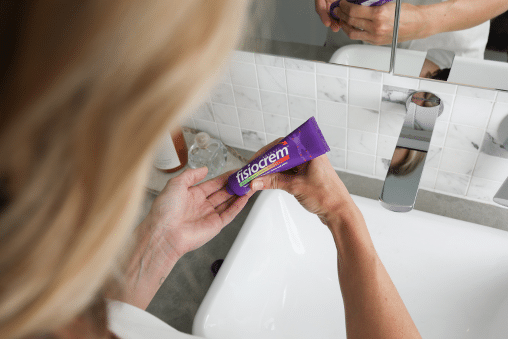
fisiocrem Joint Ease helps to relieve mild joint inflammation and helps to promote healthy joint function. fisiocrem Joint Ease relieves mild osteoarthritis symptoms and is available online or at pharmacies, including Chemist Warehouse.
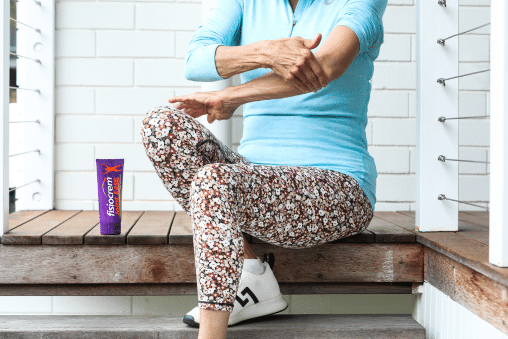
Dealing with muscle and joint pain caused by inflammation can be challenging, but it’s not impossible. By incorporating some of the above tips you can effectively manage inflammation and ease discomfort.
Consult a healthcare professional before making significant changes to your routine. Stay consistent and patient as you aim for relief.
Citations
- Addison, O., LaStayo, P., Dibble, L., Marcus, R. (2012). Inflammation, Aging, and Adiposity Implications for Physical therapists. Journal of geriatric physical therapy 35(2), 86-94.
- Benelam, B., & Wyness, L. (2010). Nutrition Bulletin, 35(1), 3–25.
- Black, P., Garbutt, L. (2002). Stress, inflammation and cardiovascular disease. Journal of psychosomatic research, 52(1), 1-23.
- Ford, E. (2001). Does Exercise Reduce Inflammation? Physical Activity and C-reactive protein among U.S. Adults. Epidemiology, 13(5), 561-568.
- Hawiger, J., & Zienkiewicz, J. (2019). Scandinavian Journal of Immunology, 90(6).
- Hess, J., Stephensen, C., Kratz, M., Bolling, B. (2021). Advances in nutrition, 12.
- Iovu, M., Dumais, G., Souich, P. (2008). Anti-inflammatory activity of chondroitin sulfate. 16(3), S14-S18.
- Lantz, R., Chen, G., Solyom, A., Jolad, S., Timmermann, B. (2005). The effects of turmeric extracts on inflammatory mediator production. Phytomedicine, 12 (6-7), 445 – 452.
- Malanga, G. A., Yan, N., & Stark, J. (2014). Postgraduate Medicine, 127(1), 57–65.
- Metsios, G., Moe, R., Kitas, G. (2020). Exercise and inflammation, 34(2).
- Nagaoka, I., Igarashi, M., Hua, J., Ju, Y., Yomogida, S., Sakamoto, K. (2011) Recent aspects of the anti-inflammatory actions of glucosamine. Carbohydrate Polymers, 84(2), 825-830.
- Ramon et al Ortho & Rheum Open Access J 20(1): OROAJ.MS.ID.556028 (2022) This study was funded by fisiocrem
- Rodríguez-Hernández, H., Simental-Mendía, L. E., Rodríguez-Ramírez, G., & Reyes-Romero, M. A. (2013). Obesity and Inflammation: Epidemiology, Risk Factors, and Markers of Inflammation. International journal of endocrinology.
- Simpson, N., Dinges, D. (2007). Sleep and inflammation. Nutrition reviews, 65(3), S244-S252.
- Tidball, J. G. (2005). American Journal of Physiology-Regulatory, Integrative and Comparative Physiology, 288(2).
- Wilund, K. (2007). Is the anti-inflammatory effect of regular exercise responsible for reduced cardiovascular disease? Clinical science, 112(11), 543-555.
- Wu, X., & Schauss, A. G. (2012). Journal of Agricultural and Food Chemistry, 60(27), 6703–6717.
Topical anti-inflammatory creams and ointments have become increasingly popular for their potential to alleviate localised inflammation and provide temporary relief. Inflammation, whether due to injury, mild arthritis, or other conditions, can cause discomfort and hinder daily activities.
What is inflammation?
Inflammation is a cellular response that follows trauma to vessels. Inflammation is described as an essential stage in the process of repairing and responding to injuries, during which the vessels are disrupted. There are two types of pain caused by inflammation they are either acute or chronic inflammation (Scott, A. 2004).
The body’s initial response to an infection or trauma is called an acute inflammatory response. This response is the human body’s first line of defence against danger (Kumar, R., Clermont, G., Vodovotz, Y., & Chow, C. 2004). Acute inflammation is generally short-lived, with inflammation generally disappearing within hours or days.
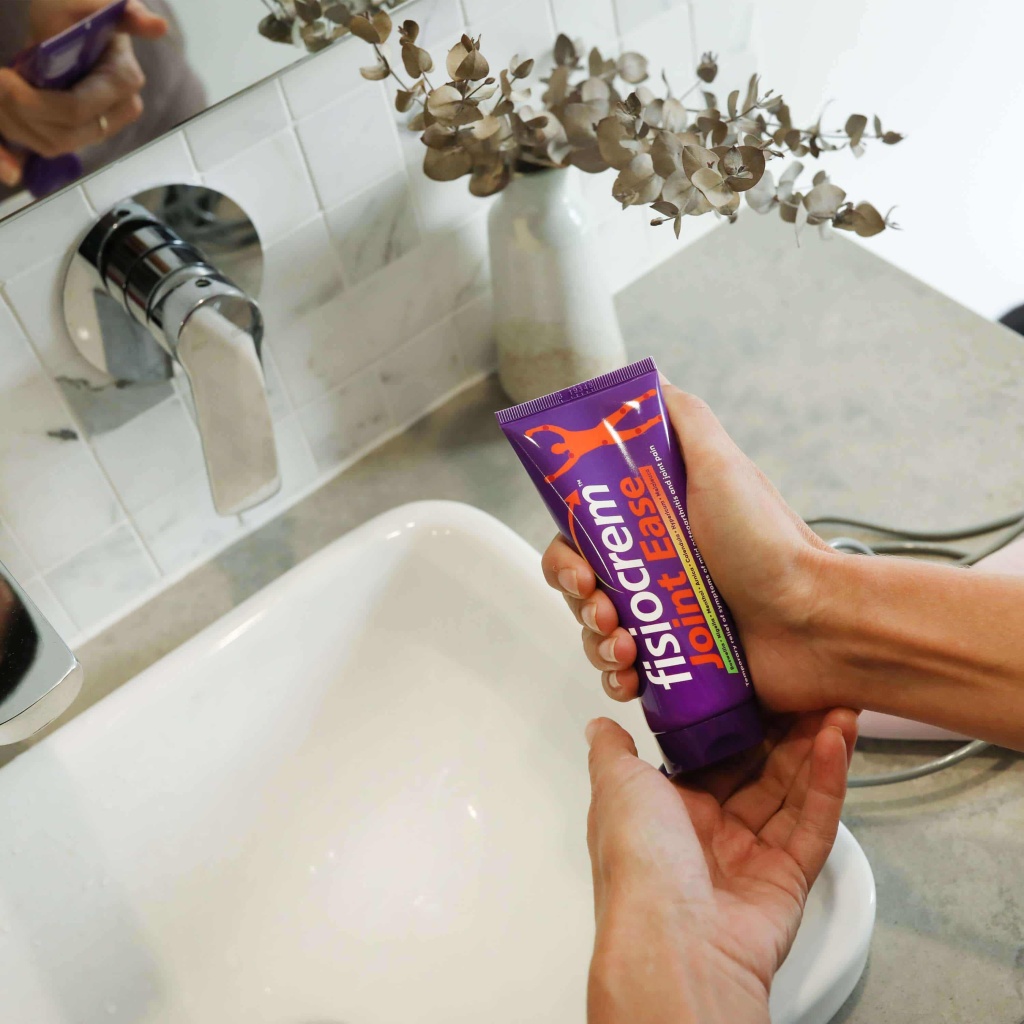
Mild Arthritis
Inflammation is a widespread issue affecting countless individuals. Mild arthritis is a common condition that is associated with inflammation. Mild arthritis leads to painful inflammation of the joints, resulting in restricted mobility and reduced quality of life.
If you are experiencing pain, swelling, stiffness, or other symptoms of long-term inflammation, talk to your healthcare practitioner. A healthcare practitioner can run some tests and evaluate and find better ways to help provide relief.
Symptoms of acute inflammation include pain and swelling (Smith, L. 1991).
*fisiocrem Joint ease is for the temporary relief of symptoms associated with mild forms of arthritis.
Treatment
Treatment of acute inflammation usually involves anti-inflammatory drugs. These may be in the form of tablets, such as NSAID’s, creams or gels, or other self-care remedies (Smith, L. 1991). Swelling and pain can be reduced with these treatments.
An anti-inflammatory diet can have anti-inflammatory effects (Galland, L. 2010). This diet includes fruits such as tomatoes, vegetables, leafy greens, olive oil, nuts, legumes, and grains.
Always read the label and follow the directions for use.
Are topical anti-inflammatory creams effective?
Topical nonsteroidal anti-inflammatory drugs are an alternative to oral NSAID’s (Klinge, S., Sawyer, G. 2015).
Topical anti-inflammatory and analgesic creams are effective in relieving pain. They can help with acute and chronic musculoskeletal disorders, such as mild arthritis, mild osteoarthritis, medically diagnosed tendonitis, and muscle pain. They also provide relief for sprains and strains, as well as overuse injuries (Haroutiunian, S., Drennan, D., & Lipman, A. 2010).
How does an anti-inflammatory cream work?
How to apply a topical anti-inflammatory gel/analgesic cream?
Topical anti-inflammatories influence the particular area that you apply them to. When applied topically the cream/gel is absorbed into your skin. They then move deeper targeting areas of the body where there is inflammation. When applied to the affected area, topical anti-inflammatory creams and gels relieve pain and reduce swelling.
Apply to the affected area and massage into the skin gently. Massaging the product into the skin will increase the blood flow to the affected area. Always wash your hands after application to avoid rubbing the gel or cream into a sensitive area such as the eyes. Ensure that you do not apply the topical cream on broken skin.
Topical anti-inflammatories can be applied 2-4 times daily. However, read the label and follow the directions for use before applying.

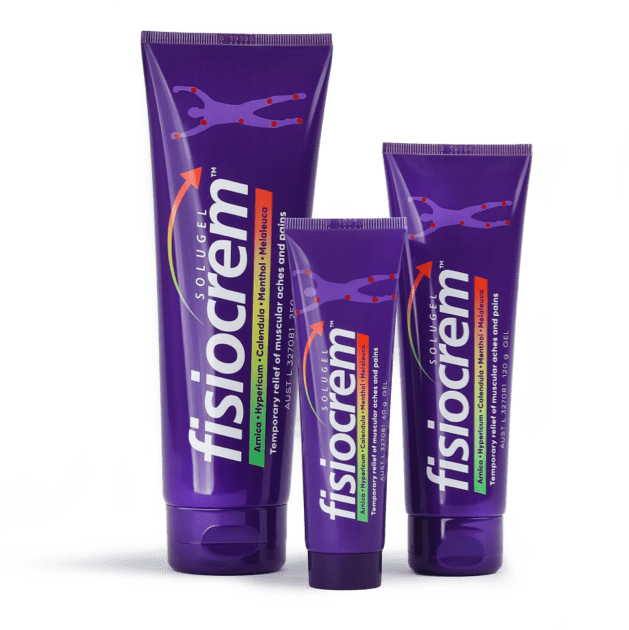
fisiocrem Solugel
Is an over the counter anti-inflammatory for muscle pain.
fisiocrem Solugel is a topical cream designed to relieve muscle pain and relieve inflammation. Its active ingredients include Arnica, Hypericum, Calendula, and Melaleuca. These active ingredients work together to provide anti-inflammatory, analgesic, and healing effects, reducing swelling, pain, and stiffness in affected muscles. fisiocrem Solugel is perfect for use after exercise or any physical activity that causes muscle pain or soreness.
When applying fisiocrem Solugel, apply a few grams to the affected area 3 to 4 times daily, or as required. Massage fisiocrem Solugel in as required.
If symptoms persist consult your health care practitioner. This is only for external use. Do not use fisiocrem on broken skin. You should avoid contact with your eyes.
Before using an anti-inflammatory cream for children, always read the product label and consult your general practitioner. For children under 3 years of age, please consult your general practitioner before using fisiocrem.
If you have sensitive skin, test this product on a small patch of skin before applying it to a larger area. If sensitivity develops discontinue use. Always read the label and follow the directions for use.
fisiocrem Joint Ease
Topical anti-inflammatory for the temporary relief of mild arthritis, mild osteoarthritis, and joint pain.
fisiocrem Joint ease, on the other hand, is a targeted cream that helps relieve joint pain and inflammation. It contains active ingredients such as Arnica, Calendula, and Boswellia, which are well-known for their anti-inflammatory properties.
These ingredients work in unison. They reduce inflammation, swelling, pain, and stiffness in joints affected by certain conditions. These conditions include mild arthritis, and mild osteoarthritis.
fisiocrem Joint Ease is simple to use. It can be included as part of your daily routine. This will help to reduce joint pain and inflammation.
When applying fisiocrem Joint Ease, apply a few grams to the affected area 3 to 4 times daily, or as required. If you have sensitive skin, test this product on a small patch of skin before applying it to a larger area. If sensitivity develops discontinue use. Always read the label and follow the directions for use. For use on children under 3 years of age, please consult your general practitioner prior to use.
Please note: fisiocrem Joint Ease is not recommended for use by pregnant or lactating women.
Shop fisiocrem Joint Ease for mild arthritis, mild osteoarthritis and joint pain.

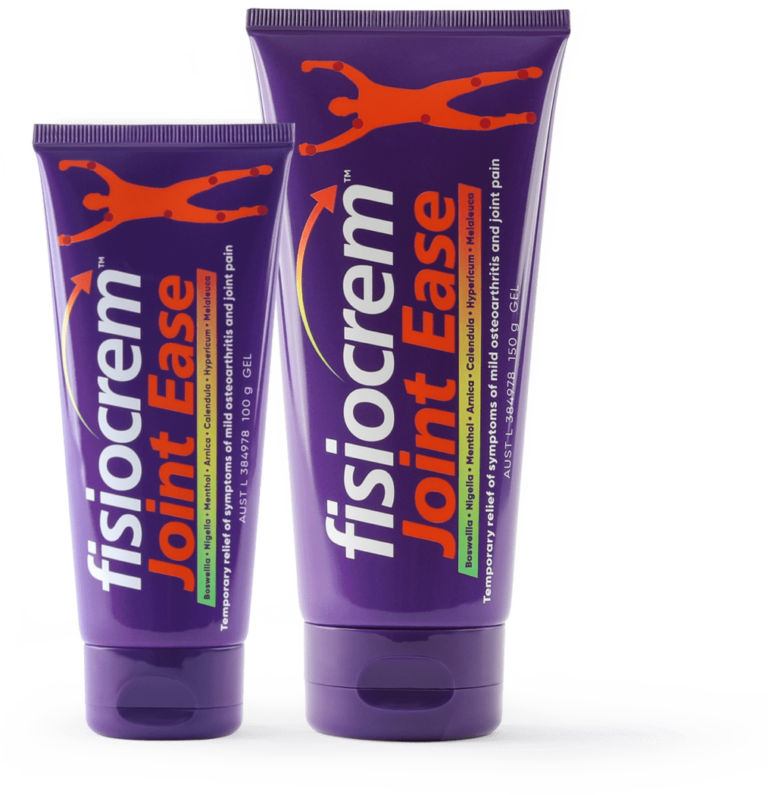
Citations
- Galland, L. (2010). Diet and inflammation. In search of the optimal diet. Volume 25 (6) 634-640.
- Haroutiunian, S., Drennan, D., & Lipman, A. (2010). Topical NSAID Therapy for Musculoskeletal Pain. Pain Medicine, 11(4), 535-549.
- Klinge, S., Sawyer, G. (2015). Effectiveness and Safety of Topical versus Oral Nonsteroidal Anti-inflammatory Drugs: A Comprehensive Review. The Physician and Sports medicine. Volume 41 (2) 64-74.
- Kumar, R., Clermont, G., Vodovotz, Y., & Chow, C. (2004). The dynamics of acute inflammation. Journal Of Theoretical Biology, 230(2), 145-155.
- Scott, A. (2004). What is “inflammation”? Are we ready to move beyond Celsus?. British Journal Of Sports Medicine, 38(3), 248-249.
- Smith, L. (1991). Acute inflammation: the underlying mechanism in delayed onset muscle soreness? Medicine and science in sport and exercise. Retrieved from https://europepmc.org/article/med/2072832/reload=0
Wholesale & Practitioners
fisiocrem Australia is devoted to helping you manage your pain, and we have been since 2009. We develop high-quality topical pain relief products that stop pain from interfering with your regular activity.
Are you visiting from New Zealand?
Visit fisiocrem New Zealand here

